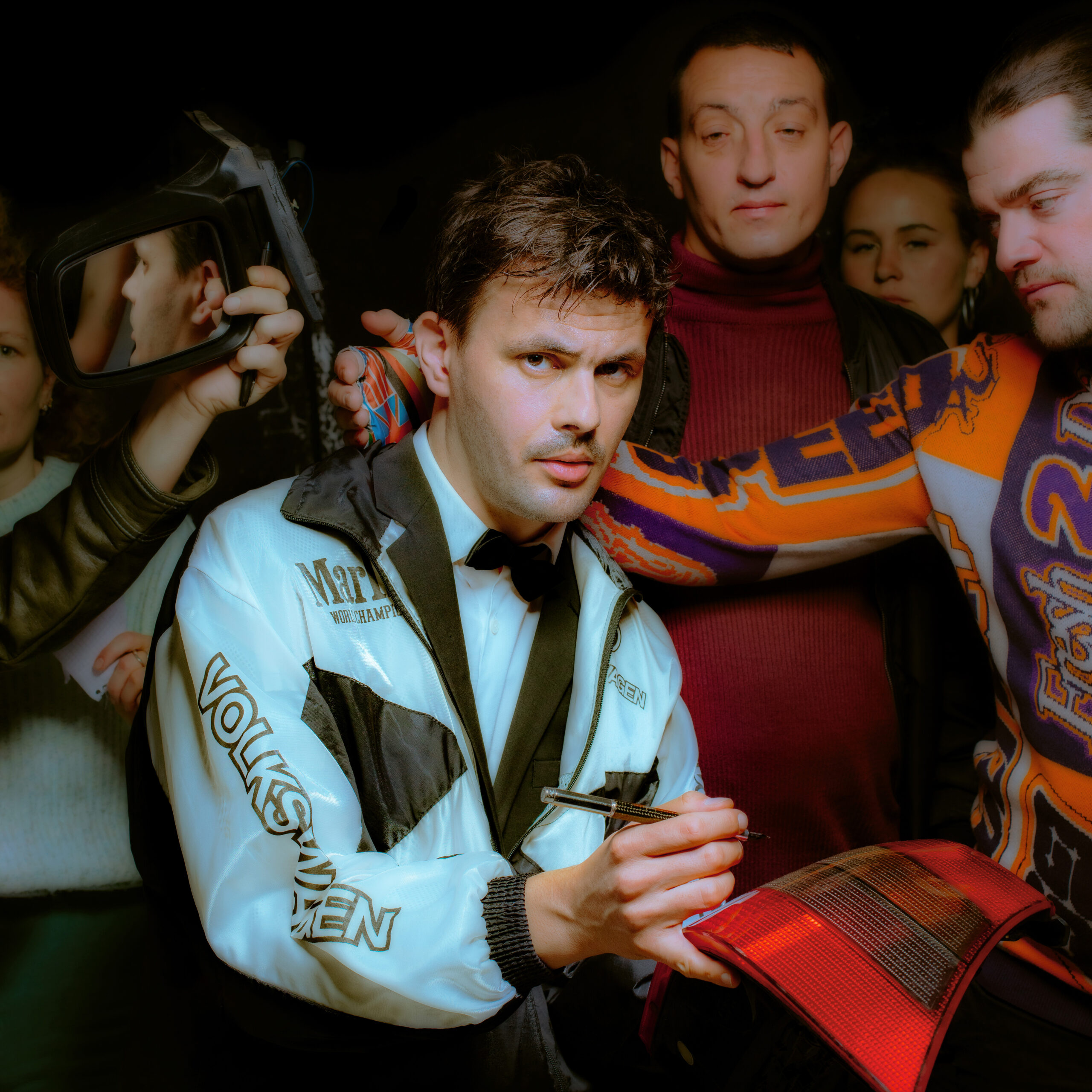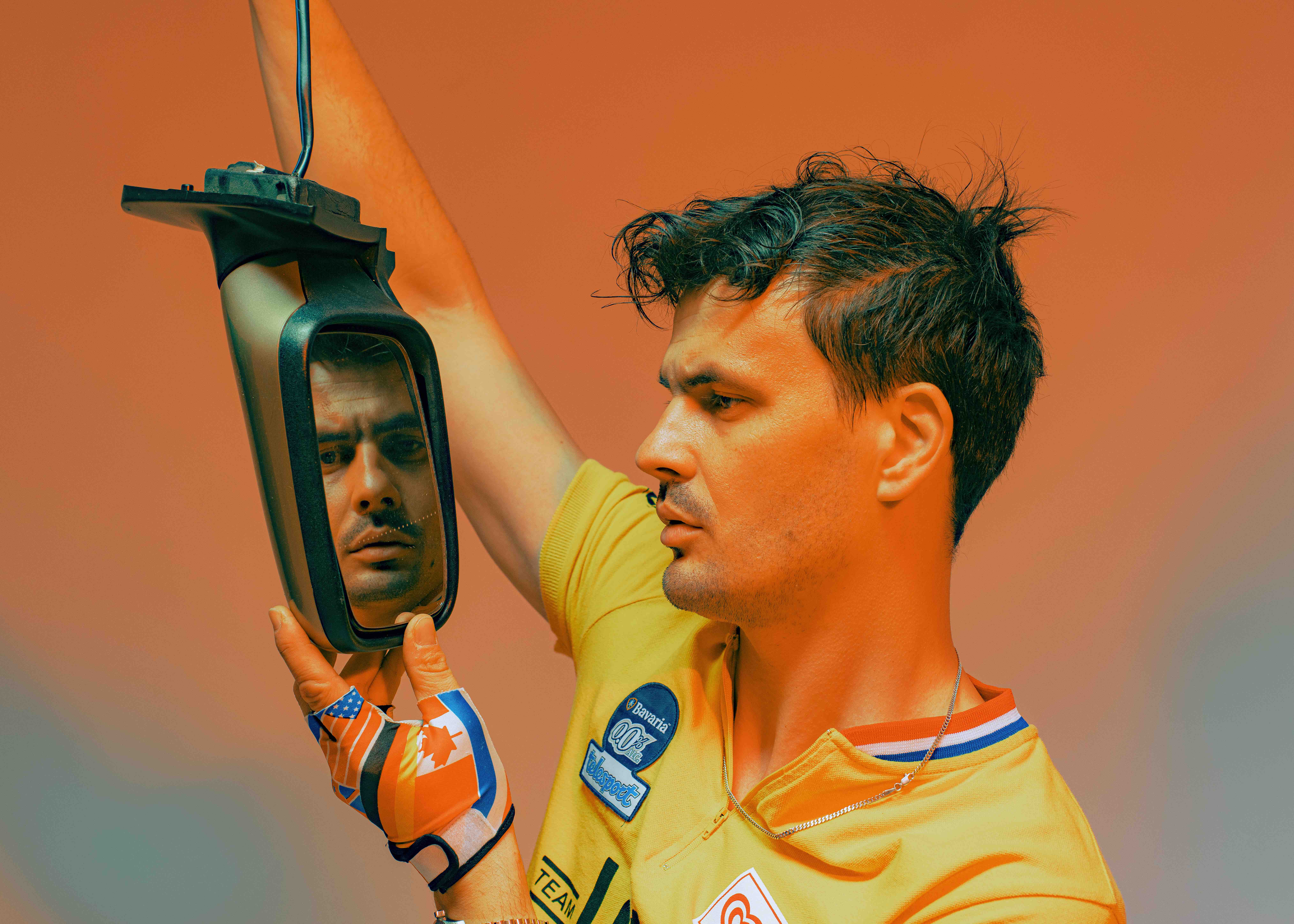‘Mein Wahlkampf’ and ‘Mavrud‘
Stoyanov has built his persona not only through his song texts and music videos, but also through funny instagram and tiktok posts, accompanied by observational comments that show the absurdity of human existence. A case in point are four videos posted recently under the title ‘Mein Wahlkampf‘, filmed with a mobile phone from his studio, capturing and commenting the ‘tragic’ spectacle of two middle-aged men struggling to hang up an election poster for the AfD. Trying again and again for twenty minutes, they finally manage, providing Stoyanov with plenty of time for reflections and political commentaries.
‘Motor Songs‘ (2022) is Bulgarian Cartrader’s debut album. Many songs are autobiographical, while the texts are replete with associations and memories that are not always easy to interpret. Only Stoyanov knows what he is refering to, which, as form of artistic license, is absolutely fine. In some songs, like ‘Mavrud’, he evokes his Bulgarian origins through musical ‘citations’: staying faithful to his indie roots, he carefully avoids the usual ‘world music’ or ‘Balkan Beats’ cliches. His music is sophisticated, contemporary, catchy and melodious, with jazz and other influences. Only once in a while, one hears a tune or sound that echoes his Balkan background.
In his texts and visuals, however, Bulgaria is all over the place. ‘Mavrud’ is an ode to a Bulgarian wine that gives the person that drinks it magic powers. Bulgarian grandmas figure prominently in his videos: they run his social media campaign, and apply magic and voodoo to boost his popularity in algorithms and rankings. The Album Visualizer of ‘Motor Songs’ shows his grandmother setting up a table with Bulgarian food in her small and crowded kitchen, for a full fourty-two minutes, in one static long shot without any cuts or edits. And then there are the joyful moments in the recent history of this small Balkan country: as he explained during the gig, ‘1994 euphoria’ is about the football World Cup quarter final that Bulgaria won against Germany, with a decisive goal that he narrates in an overexcited manner – like a sports reporter on TV – in the middle of the song, apologizing to the German audience afterwards.
‘Embrace’
His eight-and-a-half-minute long ‘Embrace’ is the most autobiographical piece on the album. In this ‘epic’ spoken-word song, he tells how he, born in 1986 (the year of Halley’s Comet), is followed by a slow bullet that forces him to constantly move in order not to be hit by it. It talks about the first years of his life in Bulgaria, his parents, his homesickness, traumatic images, such as pictures of dead people in Sarajevo and other war zones, the music he listens to, and his first gigs. The bullet compels him to get unstuck and stay in motion, gaining a sense of freedom on the way. The accompanying video shows the apartment of his maternal grandmother in a northern Bulgarian town – she took care of him during his parents’ first year in Germany – and ends with Stoyanov running.
As we saw at the gig, he is a crowd-pleaser, who makes a real effort to provide some context about his songs, for an audience that may be looking for clues. Let’s end with one such explanatory note, about ‘Camden Free Public Library‘, one of my favorite songs. He declares his love for public libraries, as places where one can unwind, find dignity, discover unknown worlds and new opportunities. As he explained during the concert, a book has a beginning and an end, unlike this ceaseless scrolling on mobile phones, which makes all of us restless. That sounds like a pretty good piece of advice from a car trader.

